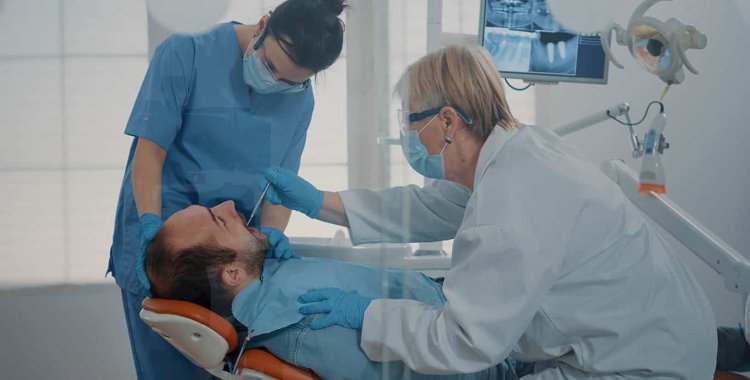How to Tell If You Need Urgent Dental Care
Broken or chipped teeth can be uncomfortable. It’s important to know when a break warrants urgent dental care fairhope al.

If you experience a dental emergency, prompt treatment can help alleviate pain and prevent complications. But with so many emergency dental clinics out there, how can you tell if your situation warrants an urgent visit?
Educating yourself on what constitutes a true dental emergency and when to seek urgent care will ensure you don’t delay needed treatment. Read on to learn more about six common dental emergencies that require immediate attention.
Broken or chipped teeth
Broken or chipped teeth can be uncomfortable. It’s important to know when a break warrants urgent dental care fairhope al.
A broken tooth is considered a dental emergency if it causes bleeding or pain that does not subside. It’s also an emergency if the tooth is knocked out. A knocked out tooth can easily become dislodged if it isn’t placed back into its socket right away.
It’s also an emergency if the crack reaches the pulp, which contains blood vessels and nerve endings. It can cause severe pain and sensitivity to cold/heat, and bacteria can infect the pulp, making the condition worse. Urgent treatment prevents further complications, relieves pain, and restores the appearance of the tooth. The dentist may recommend dental bonding for minor chips or a crown for larger fractures.
Toothache
A toothache should be taken seriously, as it could be an indicator of a bigger problem and can lead to more severe dental issues over time if ignored. However, it may not require urgent dental care, especially if you call your dentist and they can see you later that day.
Over-the-counter pain relievers like acetaminophen or ibuprofen can help alleviate the discomfort until you can get to your dentist’s office. Rinsing your mouth with warm water or salt solution can also reduce swelling and numb the pain. If you have something stuck between your teeth, try gently flossing and using an interproximal brush to dislodge the object. If you bite your tongue, cheek, or lips and experience bleeding, apply a cold compress to control the pain and stop the bleeding.
Uncontrolled bleeding
There are many dental-related issues that can be treated quickly if a person seeks care immediately. Uncontrolled bleeding is one such situation. If a person experiences bleeding after a tooth extraction or injury, they should call their dentist right away to arrange for an emergency appointment.
This type of bleeding can become severe and prolonged if it is not addressed. It may lead to a large intraoral hematoma and airway compromise in certain cases.
Whether the bleeding is considered a dental emergency depends on several factors. This includes the severity of the injury and the patient’s medical history. People who have conditions like hemophilia or are taking blood-thinning medications may experience more serious problems. It’s important to have clear hospital protocols and guidelines that address these situations.
Swollen gums or abscess
Swelling around a tooth or gums is a sign of an infection that needs urgent dental care fairhope al. You should seek emergency treatment from a dentist or go to hospital if you cannot get an appointment.
You can take painkillers or ice packs to ease the pain and discomfort while you wait for your emergency dentist to arrive. Some people also find relief by crushing a clove of garlic and applying it to the swollen area, which contains the chemical allicin that aids in fighting the infection.
If the swollen gums are caused by gum disease, your dentist may recommend a range of treatments including oral rinses that reduce bacteria and remove plaque, tooth scaling and root planing, and osseous surgery (to reduce the pockets around teeth). They may also prescribe antibiotics if an infection is present.
Knocked out tooth
Fractured, loosened, or knocked-out (avulsed) teeth are common emergencies that require immediate care. Tooth injury often occurs as a result of sports, an accident, or trauma to the mouth.
If possible, try to locate the tooth and re-insert it into its socket. Otherwise, store it in milk or saline solution to keep it moist. Do not use water that contains chlorine, as this can damage the root surface cells that are needed for re-implantation.
Knocked-out teeth that are not treated quickly can lead to infection, bite problems, and bone resorption in the socket, requiring more extensive and costly restorative treatments down the road. Early intervention and appropriate treatment can increase the likelihood of tooth retention and prevent long-term complications. Our dentists will evaluate the situation with diagnostic X-rays and determine if the tooth can be saved by re-implantation or other methods.
What's Your Reaction?















.jpg)
.jpg)

